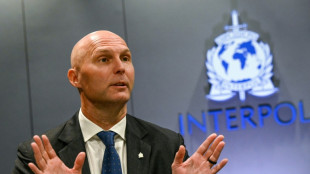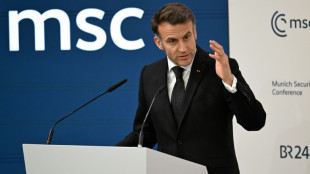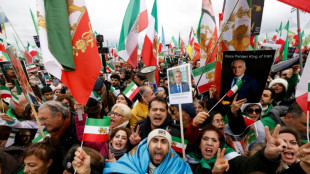

UN rights council orders probe of atrocities in Sudan's El-Fasher
The UN Human Rights Council on Friday ordered investigators to probe alleged atrocities in Sudan's El-Fasher and to seek to identify perpetrators so they can be brought to justice.
The United Nations' top rights body adopted a resolution ordering the UN's independent fact-finding mission on Sudan to urgently investigate violations in El-Fasher.
The text also called on the investigative team to "identify, where possible" suspected perpetrators in a bid to ensure they are "held accountable".
The decision came at the end of a special session called to address the situation in El-Fasher, amid mounting warnings of crimes against humanity and the risk of genocide.
"Bloodstains on the ground in El-Fasher have been photographed from space," UN rights chief Volker Turk warned as he opened Friday's session.
"The stain on the record of the international community is less visible but no less damaging."
Since breaking out in April 2023, the war between Sudan's army and the paramilitary Rapid Support Forces has killed tens of thousands of people, displaced nearly 12 million more and triggered one of the world's worst humanitarian crises.
The violence has escalated dramatically in recent weeks, with the RSF seizing control of the key town of El-Fasher in Sudan's western Darfur region after an 18-month siege and reports of atrocities multiplying.
- 'Coordinated campaign against civilians' -
British ambassador Kumar Iyer, whose country requested the special session along Germany, Ireland, the Netherlands and Norway, insisted that "the scale and severity of the crisis in Sudan can no longer be met with silence".
"The violence in El-Fasher bears the hallmarks of a coordinated campaign against civilians by the Rapid Support Forces," he said, pointing to "credible reports of actively targeted killings, systematic, sexual violence, and the deliberate use of starvation".
Before Friday's resolution was adopted, he urged countries to greenlight the text: "without it, accountability will remain out of reach and the cycle of impunity will continue."
The text was adopted by consensus, although several countries, including Sudan, disassociated themselves from the paragraphs broadening the scope of the fact-finding mission's investigation.
Reports have emerged of executions, sexual violence, looting, attacks on aid workers and abductions in and around El-Fasher, where communications remain largely cut off.
The UN estimates that nearly 100,000 have fled El-Fasher in the past two weeks, many going to Tawila, about 50 kilometres (30 miles) away.
"Information gathered indicates that hundreds of women and girls were raped and gang-raped along escape routes, including in public, without fear of repercussions or accountability," Mona Rishmawi, from the UN's independent fact-finding mission on Sudan, told Friday's session.
- 'Risk of genocide' -
Adama Dieng, the African Union special envoy and the UN special adviser for the prevention of genocide, meanwhile warned that "the risk of genocide exists in Sudan. It is real and it is growing every single day."
Sudanese ambassador Hassan Hamid Hassan agreed, cautioning that his country was caught up in "an existential war".
He condemned the United Arab Emirates in particular for "supporting (the RSF) with military and strategic equipment".
The UAE denies backing the RSF.
UAE ambassador Jamal Jama Al Musharakh criticised both the paramilitaries and the Sudanese army, accusing the latter of "indiscriminate attacks on markets, villages and hospitals, amid famine, while ignoring international calls for a truce".
Much of Friday's discussion revolved around the need to ensure accountability for the atrocities on display.
He also said that "despicable disregard for civilian lives" was also becoming apparent in the neighbouring Kordofan region.
"Kordofan must not suffer the same fate as Darfur," he added.
Y.Raman--MT




